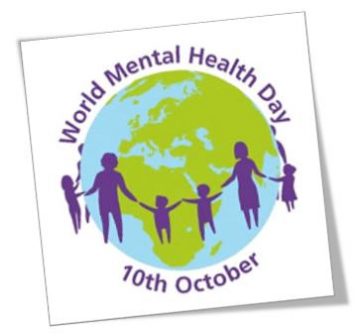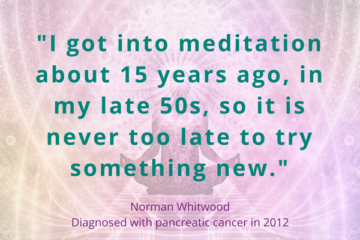The effect of cancer on Mental Health – #WorldMentalHealthDay
 Today is World Mental Health Day, a day that draws attention to the importance of mental health and aims to increase public education.
Today is World Mental Health Day, a day that draws attention to the importance of mental health and aims to increase public education.
Receiving a diagnosis of a serious illness, like pancreatic cancer, can have a huge impact the mental health of you and your family and it is extremely normal to experience anxiety, worry and fear.
Below are a few commonly diagnosed conditions for people with cancer and possible treatments as well as links to support services and free information.
More information about mental health can be found on the Mental Health Foundation website.
Common Conditions
Anxiety
Anxiety is a type of fear usually associated with the thought of a threat or something going wrong in the future, but can also arise from something happening right now.
Click here for symptoms to look out for and treatment options for anxiety
Stress
Stress can be defined as the way you feel when you’re under abnormal pressure. Stressful events that are outside the range of normal human experience may lead to post-traumatic stress disorder (PTSD).
Click here for symptoms to look out for and treatment options for stress
Post traumatic Stress Disorder (PTSD)
Post-traumatic stress disorder is a reaction to exposure to very stressful and traumatising events. People experience flashbacks, panic attacks and other acute symptoms. It can be treated, so it is important to get expert help.
Click here for symptoms to look out for and treatment options for PTSD
Depression
Depression is a common mental disorder that causes people to experience depressed mood, loss of interest or pleasure, feelings of guilt or low self-worth, disturbed sleep or appetite, low energy, and poor concentration.
Click here for symptoms to look out for and treatment options for Depression
Common Treatments
Cognitive Behavioural Therapy (CBT)
Cognitive behavioural therapy – commonly known as CBT – is a type of therapy that works by helping you to understand that your thoughts and actions can affect the way you feel.
It teaches you to observe the way your behaviour and thoughts can affect your mood, then work to build new habits that help you to feel better.
Mindfulness is an integrative, mind-body based approach that helps people to manage their thoughts and feelings. It is becoming widely used in a range of contexts. It is recommended by NICE as a preventative practice for people with experience of recurrent depression.
Norman Whitwood was diagnosed with pancreatic cancer in 012 and uses mindfulness and meditation to help stay calm. Click here to read his blog
Read more about mindfulness here.
Medication
For some people, drugs are a short-term solution used to get them over an immediate crisis. For other people, drugs are an ongoing, long-term treatment that enables them to live with severe and enduring mental health problems.
Read more about medication for mental health problems here
Information
Receiving strong family support as well receiving the correct information at each stage of diagnosis is important. Pancreatic Cancer Action provides free patient information booklets that you van view online or are free to order.
The National Cancer Institute has produced a publication that offers support for those coping with advanced cancer. It provides information and advice about talking with your health care team, tlaking with the special people in your life, coping with your feelings and much more. You can read it here.
Sources of support
If you or someone you know has been diagnosed with pancreatic there are many support services and forums that offer practical advice and information and a place to engage with others in your situation.
Click here for support and discussion networks, financial support and bereavement support.
